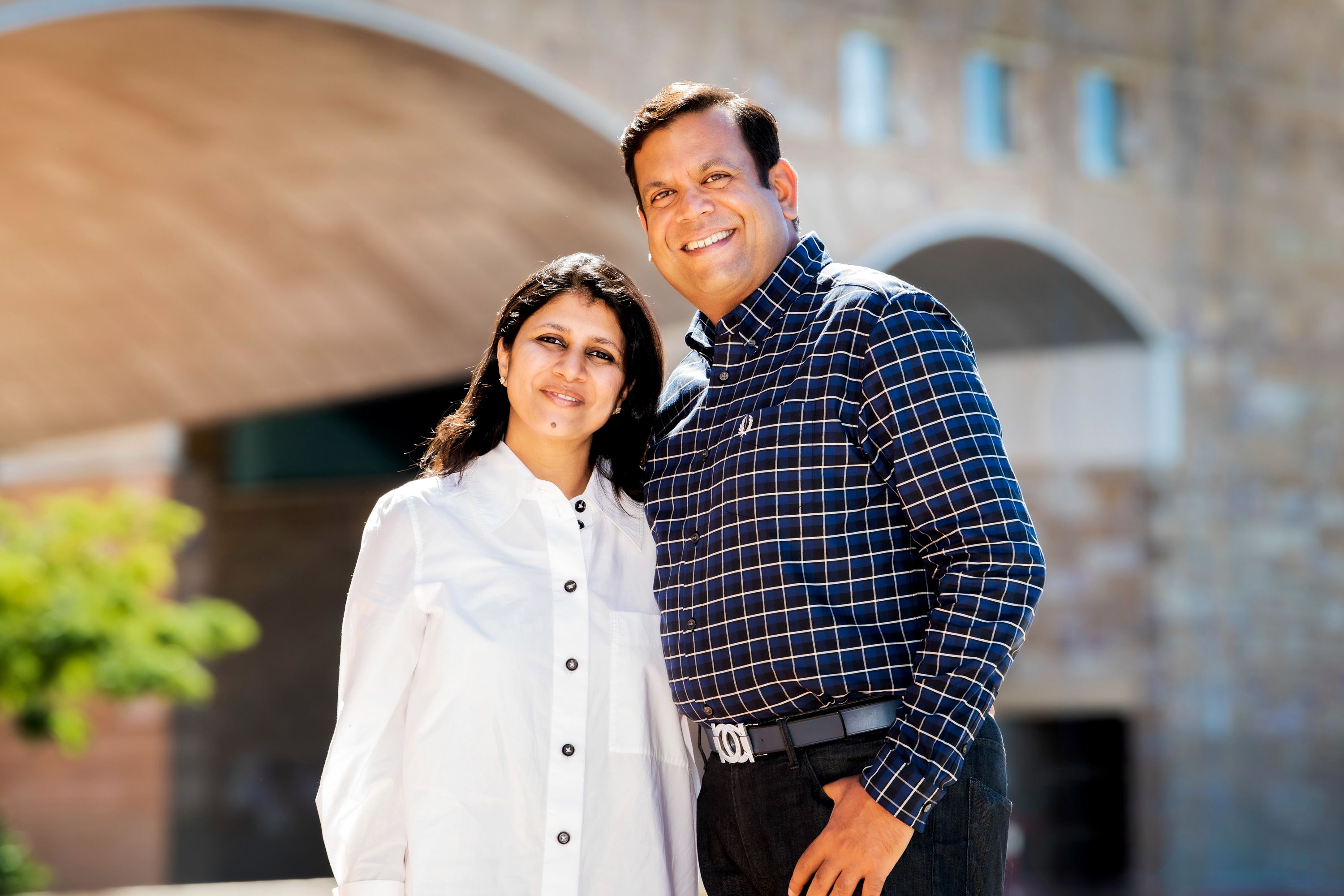Net worth
He discovered cyberspace at Bond. Now Harsh Hada is helping his compatriots into higher education

Bond University alumnus Harsh Hada took websites to India. Now he helps some of his poorest compatriots into higher education.

Two things caught Harsh Hada’s attention when he first arrived at Bond University in 1995 — one in the digital realm, the other in the physical world. Hailing from Kolkata, a city known for its chaotic energy in a country of 1.4 billion people, the contrast was stark.
“It was the basic human interaction, just simple cultural things that left such a huge impact on me,” he says. “While walking to uni, strangers would greet you, ‘Morning mate, evening mate’. India is a very populated country and sometimes you feel like just a number. When you come to Australia, you learn to value human beings.”


As a philanthropist who has helped almost 1,000 of his compatriots achieve better lives through education, the intrinsic value of every person is very much central to Mr Hada’s life these days. And it has all been possible because of the other thing he discovered at Bond: the internet.
Mr Hada (Class of 1995) was fresh out of high school when he attended a career counselling session with one of Bond’s first Indian alumni, Ravi Lochan Singh (Class of 1990). The company Mr Singh founded in 1991, Global Reach, is now the largest overseas education consulting company in South Asia.
“My family wanted me to be a bit more exposed to the world outside and that's how, just after class 12, I came to Australia and Bond,” he says. “I’m very glad I did.”
Mr Hada enrolled in a Bachelor of Commerce but quickly became captivated by the emerging internet which in 1995 was used by less than 4 per cent of Australians. It was the year Amazon went online and Windows 95 was launched. “The internet didn't even have a graphical user interface, but then we started seeing web pages being developed. We actually saw the birth of the internet here,” he says.
One of Mr Hada’s professors, Kuldeep Kumar, who is still teaching at the University, hoped Mr Hada would further his studies at Bond.
“He was a very good student,” Professor Kumar says. “I wanted him to stay and do an MBA.” But Mr Hada had other ideas. “I went back to India and started an internet company.”
Mr Hada formed Web Development Company Limited (WDC) with two friends he met at Bond, Rahul Sharma (Class of 1992) and Rahul Todi (Class of 1995).
"When I got back home you could just walk into any company, show them what a website was and sign them up," Mr Hada says. “Many of the top 500 companies of India had their first web presence thanks to our company.”
WDC expanded from webpage design to IT services and outsourcing in India. When the Fortune 500 multinational ManpowerGroup acquired WDC in 2012, the company had 3,000 staff.
“I saw that among my employees, if they could do some basic programming, they could do anything. The middle class is now close to 300 million people, but you still have 900 million people who are poor.”

Mr Hada got to thinking. When he sold WDC he had made more money than he could ever have imagined.
“(My wife) Payal and I had decided early on that we would not have children. Twenty years into marriage you start feeling that, we don't have children, but we still can make a difference to so many other kids,” Mr Hada says. “We wanted life to mean something beyond our consumption, beyond fancy holidays, cars and houses. And that’s when we launched HPF.”



The Harsh and Payal Hada Foundation began its work in 2010. Since then it has provided higher education scholarships to 950 students, many from families whose monthly income is less than $400. The scholarships are open to all regardless of caste or religion.
“Australia taught me that too. I was welcomed here by so many Australian friends. Our trust does not discriminate. That’s not anything great - that's basic humanity.”
Among the many success stories, a few stand out. One student, the son of a subsistence farmer, is now studying his PhD at Purdue University in the US. Harsh and Payal also beam with pride at the success of another scholarship student, the Muslim daughter of a shoe salesman.
“In India, to get into medicine, you have to sit something called a Joint Entrance Examination and every year a few million students will sit for it and 20,000 are admitted into government colleges. We sent her to a place where she could prepare for that entrance examination and sponsored her entire coaching. She got admitted into a good medical college. Although her education costs were negligible, she had to still pay for her boarding and lodging fee. We did that for four years for her. And now she's a gynaecologist.”
This article was originally published in The Arch edition 33.
Original thinking direct to your inbox
Stories from Bond
